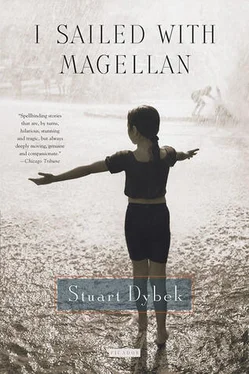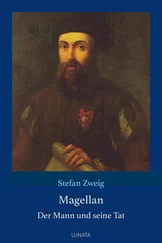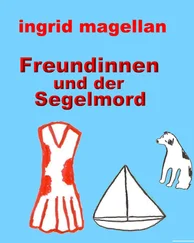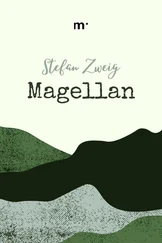Even back out in the cold I caught her scent through the diesel fumes of buses and wafts of caramel corn and roasted nuts, as if I’d been blessed with a dog’s power of smell. The wind had let up, and the floating snow collecting on the windshields of cars parked illegally along the curb now resembled the snow behind display windows — hanging flakes that sparkled in the lights.
She turned south on Wabash and waited for the signal to cross the street. I caught her profile bathed in the green of the traffic light. Her breath steamed. She wore the same intensely private expression that I’d noticed as she stood before the perfume counter. Not a dreamy look — the opposite, really, though I couldn’t have described it at the time: the look of someone so alerted to her inner life as to be detached from the world around her. She wasn’t part of the bustling crowds, she wasn’t shopping, she wasn’t stopping to browse.
The light changed, we crossed the street. An El racketed overhead, balanced precariously at the edge of the tracks, scraping blue sparks from the third rail. My mind raced with plans for what to do next. I thought of simply running up behind her and, as I went by, wishing her Merry Christmas and handing her the box, then rushing off. Or perhaps it would be better to say, “Excuse me, miss, you dropped this,” and before she could recover from her surprise enough to say anything or try to hand it back, I would be racing off as if I was late for an important engagement, glancing over my shoulder and waving at her as she stood there puzzled but smiling while the rush-hour crowd parted around her.
Whatever my strategy, she’d be surprised, but then I considered that it might not necessarily be a pleasant surprise to have some guy in a topcoat that was too big for him, and wearing a Robert Hall suit purchased for the Sophomore Hop and already outgrown, running up out of nowhere and handing her a perfume she’d just surreptitiously sprayed along her breasts.
It would be better if, in passing on the street or stopped at a traffic light, we were jostled together in the crowd, and in that instant I slipped the perfume into the pocket of her black coat. She was walking bareheaded with her coat unbuttoned, one hand thrust in a pocket, and the hem flaring open with each stride. Slipping the perfume into her coat was a plan that would work only if I was a pickpocket, as deft as one of those kids under the tutelage of Fagin in Oliver Twist . Whatever I settled on had to be unobtrusive, and, as I hadn’t arrived at a workable scheme, I merely followed her down Wabash.
We caught the light on Madison and crossed. In the middle of the block, a Salvation Army band played “O Come, All Ye Faithful” to the accompaniment of blaring traffic. The closer we got the more off-key the band sounded. The trumpet player, a gangly kid in wire-rim glasses, was the worst offender. His acne scars were violet in the cold, and his tone broke repeatedly like an adolescent’s voice. I would have sympathized with him if each time he flubbed a note he hadn’t blown louder. Beside him a tuba player oompahed a bass line that would have made him a natural in the Polka Gents. There was an old guy wearing woolly white earmuffs, thumping a bass drum with a matching woolly mallet, and a fellow with a beard off a Smith Brothers cough drop box playing an ice-cold-looking glockenspiel. They all looked cold, and remarkably they all looked as if they were smiling, even the two brass players.
The woman’s gait slowed as she approached them. She glanced at her watch, then joined the small group of people who stood listening to the carol. The band roused to a crescendo on “sing choirs of angels, sing in exultation,” and the trumpet player hit a flat note that had passersby shaking their heads, but he simply raised the bell of his horn higher into the falling snow and continued to play. Behind his thick glasses, his eyes were squeezed closed, and I noticed that the woman, too, had raised her face to the snow and closed her eyes so that the snowflakes crumbled on her lashes.
Amidst the small gathering, I had edged just beside her, closer than I’d dared before, close enough to catch the scent again. Inside my coat pocket I clutched the box of perfume, still waiting for the right moment. The carol hung suspended on the last refrain, drawing out the notes before raggedly collapsing to a conclusion. There was a smattering of glove-muffled applause and the tink of donations. She dug into her coat pockets as if searching for a coin, but came up with only a rumpled Kleenex. I took the opportunity to step forward, peel a bill from Uncle Lefty’s wad, and drop it into the collection pot, and she turned, gazed directly at me, and smiled. Then, glancing at her watch again, she continued down Wabash, and the moment dissolved like the scent of her perfume as I watched her walking away.
I should have stopped right there and watched her disappear into the crowd, content with the acknowledgment of her smile, but the musicians launched into “The First Noel,” and suddenly it felt so lonely there listening to them by myself that I started after her again.
She was already across Monroe, and I had to cross against the light and dodge through traffic. She stopped at the Wabash entrance to the Palmer House hotel, and a bellman with a luggage cart pushed by, momentarily shielding her from view. I sped up so as not to lose sight of her as I had in Field’s, but she remained standing before the entrance, watching an airline bus with dark windows load up passengers while guests returning from shopping sprees bustled around her. A doorman in green livery, with a whistle piercing enough to carry over the roar of the El, hailed a Checker cab, opened the passenger door, and gestured toward her. For a second I thought she was going to get into the cab, and I had an impulse to rush up and toss the perfume in after her, though what I did was stand there frozen. Then another woman and a man, both dressed for the theater and laughing uproariously over some private joke, dashed past her and grabbed the cab instead. It swerved off into the snow, taking their merriment with it, and she turned as if a decision had been made for her, and walked through the entrance.
I trailed behind her past an arcade of shops, then up a broad flight of marble stairs to the vaulted lobby on the second floor, with its coral-and-green expanse of carpet. Mirrors and marble reflected the electric candlelight of the brass sconces. A Christmas tree, not the equal of Field’s but magnificent all the same, rose up to a mezzanine. At a grand piano, a pianist rippled Christmas tunes as if they were Chopin. Gone was the bustle at the outside entrance, the lobby seemed serene. I was no longer one of a crowd on a snowy street. Since she’d smiled at me outside, I’d lost the camouflage of anonymity integral to my impossible schemes.
She went straight to the front desk and spoke with the clerk, then crossed the lobby to the elevators. For a moment outside the hotel she’d looked nervous, indecisive, a little lost. Now, she had that air again of someone absorbed in her own private world.
She stood alone at the bank of elevators, smoothing back her hair, then pressed the button and the doors opened. Had there been a crowd waiting I might have squeezed in with them, but not with just the two of us. I didn’t want her to look at me as if I was some weirdo. She looked out at me without the slightest hint of recognition. She was freshening her lipstick. I could imagine the elevator filling with her perfume. The doors slid closed. I’d been acting weird, but I knew what was really crazy was my feeling that I missed her.
I watched the ascent on the panel of lighted numbers. When the elevator stopped on the nineteenth floor and began to descend, I walked to the front desk. In the time it had taken the elevator to rise I had formulated my best plan yet, not just some fantasy but one I knew would work.
Читать дальше












